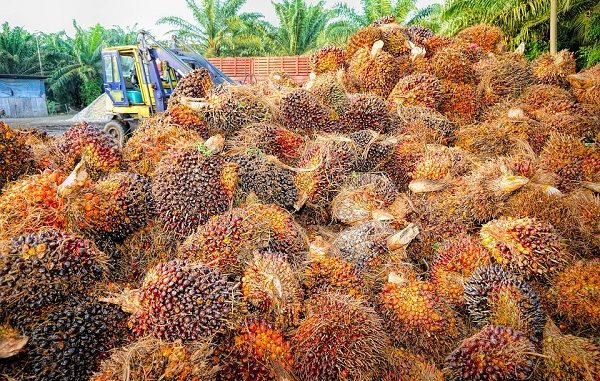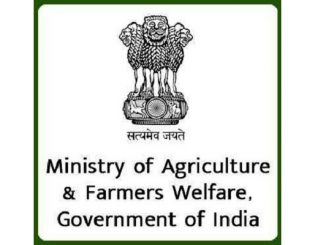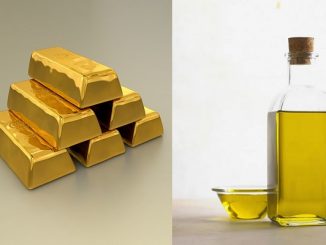
Palm oil has always been the darling of the commercial edible usage industry. Right from the HORECA segment i.e. Bakeries , Hotels, Canteens, Cafeterias, Restaurants, Food Shops including Street food vendors, etc., as well as in the Industrial usage such as manufacturing of Lip balms, Bio Fuel, Pharmaceutical, etc., Palm oils are preferred against other oils such as sunflower, soybean, safflower, groundnut, etc.,
In the kitchen, Palm oil is preferred primarily by the lower and middle stratum while the upper middle and upper are moving towards soft oils such as Sunflower Oil, Soybean, Olive, etc., due to the health benefits that they gain.
Global Demand for Palm Oil
Recent World Trade Organization statistics for 2019 show that globally the Palm Oil sales has been 50.28 MMT generating USD 27.72 billion in revenue. The primary recipients of these orders are
| Sl. No | Country | Quantity Exported in 2019 (MMT) | Revenue Earned (US$ Billion) | Share in world Exports (%) |
| 1 | Indonesia | 28.26 | 14.70 | 53 |
| 2 | Malaysia | 15.20 | 8.33 | 30.1 |
| 3 | Netherlands | 1.33 | 1.02 | 3.7 |
| 4 | Guatemala | 0.81 | 0.39 | 1.4 |
| 5 | Papua New Guinea | 0.73 | 0.42 | 1.5 |
MMT – Million Metric Tonnes
Also the primary purchasers of Palm Oil are
| Sl. No | Country | Quantity Imported in 2019 (MMT) | Value Imported in 2019 (US$ Billion) | Share in world Imports (%) |
| 1 | India | 9.73 | 5.40 | 18.1 |
| 2 | China | 7.55 | 4.10 | 13.7 |
| 3 | Pakistan | 3.16 | 1.75 | 5.9 |
| 4 | Netherlands | 2.77 | 1.68 | 5.6 |
| 5 | Spain | 1.98 | 1.16 | 3.9 |
| 6 | United States of America | 1.58 | 1.01 | 3.4 |
| 7 | Italy | 1.52 | 1.04 | 3.5 |
| 8 | Bangladesh | 1.46 | 0.76 | 2.6 |
| 9 | Egypt | 1.10 | 0.65 | 2.2 |
| 10 | Malaysia | 1.06 | 0.55 | 1.8 |
India, China and Pakistan has always been using Palm Oil because due to its cost effectiveness and heavy usage in its culinary recipes. While India has around 17.5 Kgs per capita usage, China has 25kgs and Pakistan’s usage is about 20kgs.
However due to the COVID Pandemic, the global demand for bulk palm oil and from HORECA business segment was initially impacted as the pandemic caused the crash in crude oil price and prolonged lockdown initiated by governments worldwide. But later on, the palm oil industry is steadily picking up momentum as governments begin to ease the lockdown restrictions and open up their countries again. However
Demand for Palm Oil Imports in India
As the largest buyers of Vegetable oils, India has always supported the import of Palm Oil. Both Government as well as Industry players from Indonesia and Malaysia have engaged with Indian counterparts to ensure the demand is clearly met as well as good manufacturing practices (GMP) are applied.
While India had initially banned the Purchase of Malaysian Palm oil due to Political Interference from the Malaysian Premier in Indian internal activities. Later on India has resumed its purchase of Malaysian palm oil after the easing of the lockdown and improved trade relations between the two countries. The very low vegetable oil inventories coupled with reduced domestic production led to over 100% month on month increase in imports of Malaysian CPO into India in May.
Moving forward, the demand palm oil will remain among the favoured oils for the Indian market given its price competitiveness, and the current low availability of sunflower oil in the market. But the country is moving towards self-reliance mode (Atmanirbhar Bharath) and looking towards cultivating palm oil in India. Even the local associations have asked the government to declare Palm Oil cultivation as “Plantation Crop” and also provide benefits to farmers in terms of sustenance support and adequate resources to ensure Palm Cultivation increases in India.
However while doing so, India should take support of the Technology and Production know how from Indonesia and Malaysia to produce higher yield per acre.
Use of Technology in Palm Oil Cultivation and Manufacturing
General overall yield of Palm oil ranges between 2500-3500 Kgs/acre. However Indonesia and Malaysia has invested heavily on technology to increase the yield. Companies like Sime Darby Oils (SDO) have built a solution GenomeSelectTM, which produces higher yielding seeds.
“In 2009, our R&D team set out to learn more about the oil palm genome. Since then, we have invested over RM150 million into the research and established one of the largest genotyping labs in Southeast Asia. From the outset, our work has been guided by our Scientific Advisory Committee, made up of eminent scientists from world-leading institutions. In 2016, this research has led to us to produce our higher-yielding oil palm seed, GenomeSelectTM. The following year, we were proud to become the first Malaysian company to win an Edison Award for the development of GenomeSelectTM” says Sandeep Bhan, Chief Operating Officer of Global Trading, Sime Darby Oils.
Note: This article is loosely based on the interaction with Mr. Sanjay Bhan, Chief Operating Officer of Global Trading, Sime Darby Oils, Malaysia by teflas
Come and Participate in the upcoming 24th Anniversary event of GLOBOIL, a much-awaited event in the Edible Oil and Agri Trade Industry which is being held on 30th October 2020 to 1st November 2020 at Taj, Goa. The hybrid event will have both Physical and Virtual Presence. For Event Participation, Tickets and other details

